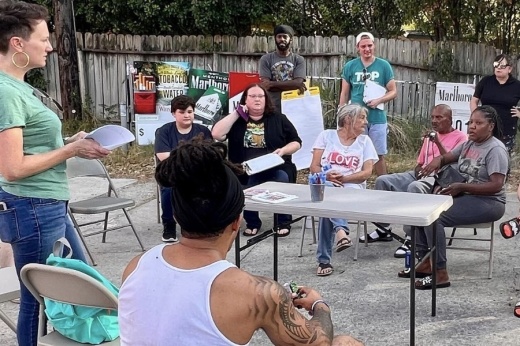Following a March 23 City Council vote, the city of San Antonio has a new proactive apartment inspections program designed to ensure apartment landlords are providing safe living conditions for tenants.
According to Amin Tohmaz, the city’s deputy development services director, the city will maintain a registry of apartment complexes that have been cited for code violations.
Apartment complexes with five or more units within San Antonio city limits could be required to be listed on the registry if they:
- Receive three designated citations within a six-month period
- Are not maintaining property to minimum code standards
- Have allowed property to develop health, safety, life and welfare problems
Beginning April 2, the city’s development services department will proactively inspect apartment complexes found with multiple code citations.
Registered properties will be subject to monthly inspections while in the program, and for a minimum of six months, city staff said.
Tohmaz said the apartment inspections program was developed with feedback from an array of stakeholders, including affordable and safe housing advocates as well as property management and apartment development groups.
City officials have said they were spurred to act partially because of cases where tenants reported unsafe living conditions and unaddressed code violations at local apartment communities, such as Seven Oaks in northwest San Antonio where residents spent several summer months without air conditioning.
“The whole reason for this is to make sure property owners and landlords have better health and safety standards for their tenants,” Tohmaz told the council.
Development Services Director Michael Shannon said apartment complexes present unique challenges, affecting many tenants and families, so it is important for the city to incentivize positive property management, and to protect residents’ health, safety and welfare.
“Holding property owners accountable for having too many violations of basic housing safety standards will help us achieve this,” Shannon said in a statement.
Property owner incentives featured in the inspections program include removal of a property from the registry if they improve and meet certain requirements.
City staff said properties must have fewer than three citations in a six-month period and correct all violations to be removed from the registry, and will remain in probation for a period of four years. Any property that returns to the program will remain in the registry for a full year. The registration fee is $100 per unit, per year, city officials said.
Renters and volunteers with the nonprofit Texas Organizing Project who have encountered their share of personal challenges while living in a local apartment complex told the council they hope the new inspections program will compel apartment landlords to properly maintain their communities.
Keisha Brown, who lives in City Council District 10, said she has tried reporting issues affecting her apartment and surrounding property, but her landlord has been uncooperative.
"I just want to make sure we all are living in safe conditions,” Brown said.
James Hamilton told the council the new inspections program is a “game-changer,” adding that many apartment property owners and landlords treat their respective properties as mere investments and not as places where people seek to live in peace.
“A lot of people are suffering because of landlords who don’t care,” Hamilton said. "Housing should be a human right, and not a commodity.”
Another local apartment renter, Ray Macias said he likes the inspections program, but asked the city to have tools in place to pre-empt landlords and property owners who threaten retaliation over the program by trying to pass their costs down to tenants or outright eviction.
“Some people may see housing as something they can gamble their money on, but most of us just see housing as a place to live,” Macias said.
District 4 Council Member Adriana Rocha Garcia said the city has in the past tried addressing issues reported by tenants at suspect local apartment complexes, but the new inspections program is a more comprehensive initiative with incentives for landlords.
“Residents at apartment complexes are asked to reach out to their property management team to report issues at their homes. In case the property management team is unresponsive, residents are encouraged to call 311 to report their concerns,” Garcia said in a statement.





